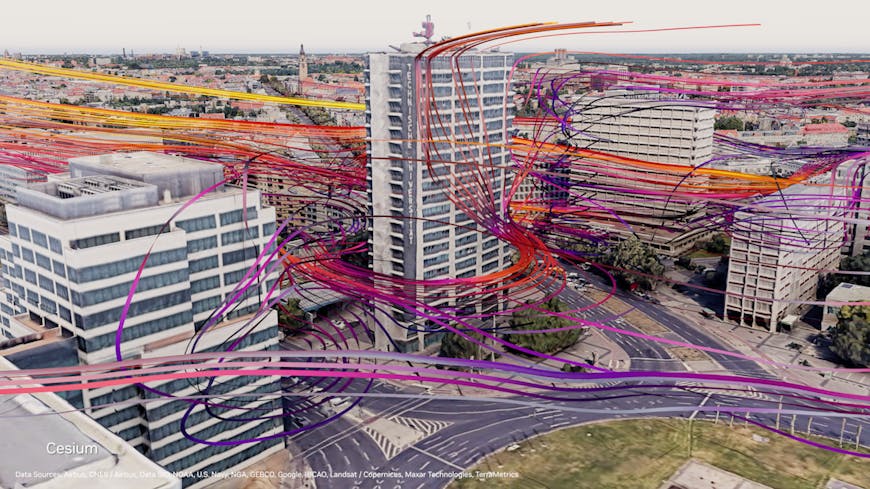Cesium Supports NVIDIA’s Earth-2 Initiative
Cesium was featured in a recent keynote given by NVIDIA founder and CEO Jensen Huang on climate research at the Berlin Summit for the Earth Virtualization Engines (EVE) initiative. EVE strives to provide high-fidelity actionable climate information at local granularity, globally, via a scalable digital infrastructure to catalyze a change in the broader ecosystem of climate data and services and deliver a just, equitable, and scientifically grounded basis for action.
Huang outlined three “miracles” necessary to achieve the goal of EVE:
- Simulate the climate quickly enough and with high enough resolution (km-scale, compared to 25 km, today’s typical high-resolution global climate simulations) to predict and assess the impacts of climate change at the granular level
- Augment and accelerate climate predictions with generative AI
- Virtualize massive datasets in NVIDIA Omniverse, a platform for creating and operating metaverse applications, for visualization and interactivity to enable informed action by policymakers, businesses, companies, and scientists.

Wind paths in Berlin, Germany, in Cesium for Omniverse—Earth-2 demo at Berlin Summit for EVE. Courtesy NVIDIA.
Cesium for Omniverse and 3D Tiles power the globe at high resolution for Huang’s demo of Earth-2, NVIDIA’s contribution to EVE. Earth-2 is an open platform that accelerates weather and climate predictions with supercomputing, AI, and digital twins built on NVIDIA Omniverse. To efficiently combine data from different sources and interact with 3D simulations, Earth-2 relies on 3D Tiles and OpenUSD to stream the full-scale global environment at high resolution. Openness and interoperability are at the heart of 3D Tiles, and they are vital for global buy-in for EVE.
Huang’s Earth-2 demo presents a high-resolution, interactive visualization of global-scale climate data in NVIDIA Omniverse Cloud, capable of observing anything from the entire African continent to street-level Berlin, Germany. The demo incorporates multiple weather and AI models, including light and clouds from a vantage point that would be hundreds of miles above the planet, and even airflow around individual buildings.
Interactive Visualization of High-Resolution, Global-Scale Climate Data in the Cloud. Courtesy NVIDIA.
Observing the climate in high resolution on a global scale is critical to developing an intuitive understanding of climate change and mitigating the climate crisis. We’re proud to support this effort through Cesium for Omniverse, our open source extension for NVIDIA Omniverse that enables an accurate, full-scale WGS84 virtual globe and an efficient 3D Tiles streaming engine for massive 3D geospatial data in Universal Scene Description (OpenUSD)-based worlds.